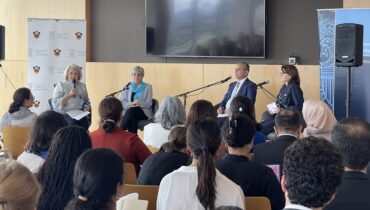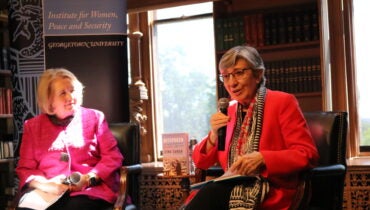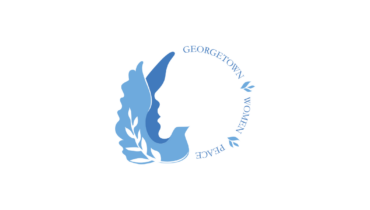On February 18 and 19, the United Nations will convene a second meeting of Afghanistan special envoys in Doha, following the publication of the UN Special Coordinator’s Independent Assessment on the critical economic, humanitarian, and political challenges facing Afghanistan. The assessment—which recommended that the international community undertake confidence building measures, cooperate on areas of mutual concern, and facilitate stakeholder and intra-Afghan dialogue to reintegrate Afghanistan into the international community—will likely influence the special envoys’ discussion.
If the Independent Assessment is meant to serve as the roadmap for the international community’s strategy towards Afghanistan, then its recommendations cannot afford to forsake the status of half of the population. As the special envoys navigate how to engage with Afghanistan, their approach must also incorporate the perspectives of Afghan women and girls.
Ahead of the second Doha meeting, all engagement with the Taliban should be principled, prioritize adherence to the UN Charter, and demonstrate respect for women’s rights—including prioritizing the Security Council’s Resolution 1325.
RECOMMENDATIONS FOR THE UPCOMING DOHA MEETING*
- Include Afghan women, minority groups, and civil society groups during the meeting. These groups have much at stake and should be given the opportunity to represent their experiences, pain, and communities firsthand.
- Appoint a Special Envoy for Afghanistan Engagement. The Independent Assessment recommended the appointment of a Special Envoy for Afghanistan Engagement, which was approved by the Security Council in UNSCR 2721. The international special envoys should work with Secretary-General Antonio Guterrés to ensure that the future Special Envoy is trusted, has expertise in women’s rights, prioritizes women’s rights and democracy, and is familiar with Afghanistan. Upon selection, the Special Envoy’s team should include a gender advisor and a mandate to have structured consultations with diverse Afghan women, including the women risking their lives to protest Taliban abuses.
- Develop a unified approach amongst Afghanistan special envoys toward advancing human and women’s rights inside Afghanistan and ending gender apartheid. There is a lack of coherence across the special envoys, which undermines their collective ability to negotiate and push for human and women’s rights. The special envoys must use this meeting to mobilize as a collective front around human and women’s rights, and heed the call of Afghan women’s rights defenders to make gender apartheid an international crime under the new UN Crimes Against Humanity Treaty.
- Be transparent. The lack of clarity on the meeting’s agenda and aims has created confusion and concern that the international community may move closer to normalizing relations with the Taliban while leaving Afghan women and girls behind. The United Nations and the special envoys should proactively share a meeting agenda and readout, ensuring that those with the most at stake have access to information while redacting sensitive identifying information to prioritize the safety of participants.
RECOMMENDATIONS FOR POST-DOHA MEETING*
- Incorporate Afghan women and girls’ recommendations into Afghanistan-related policy and reports. Afghan women and girls have an intimate understanding of the impacts of the past two years on their fundamental rights and freedoms. Their expertise and experience should inform policy decisions at all levels and any international community engagement with Afghanistan should align with the principled engagement outlined by Afghan women.
- Prioritize women’s and human rights in future engagement strategies. Human rights, including those of women and girls, must never be subordinated to other interests such as counter-terrorism, counter-narcotics, security, or economic cooperation. Afghan women and girls have the right to full equality, as stipulated by the Convention on the Elimination of All Forms of Discrimination Against Women (CEDAW) and other international laws. Anything less than this is unacceptable. No engagement strategy will be sustainable if it ignores the systematic barriers and constraints faced by at least half of the population.
- Ensure women’s meaningful participation in government and governance. The international community should ensure that a future strategy empowers Afghan women to continue as leaders and reflects the importance of inclusivity and representative government. The independent assessment should underscore that to enjoy the benefits of international normalization and reintegration, a government must represent the diversity of its constituents. The assessment does not adequately address how women will be included in the various meeting mechanisms it proposes and must fill this critical gap with specific plans.
- Emphasize the importance of Afghan women’s political representation at the local, national, regional, and international level. Any future strategy that pushes for intra-Afghan dialogue and an international contact group should also mandate Afghan women’s meaningful participation and outline how it will ensure Afghan women can safely and equitably engage with any special envoys and international stakeholders.
*While these recommendations are divided into “recommendations for the upcoming Doha meeting” and “recommendations for post-Doha meeting,” they are not exhaustive or exclusive—they should be emphasized regardless in all aspects of the conversations and follow-ups.


